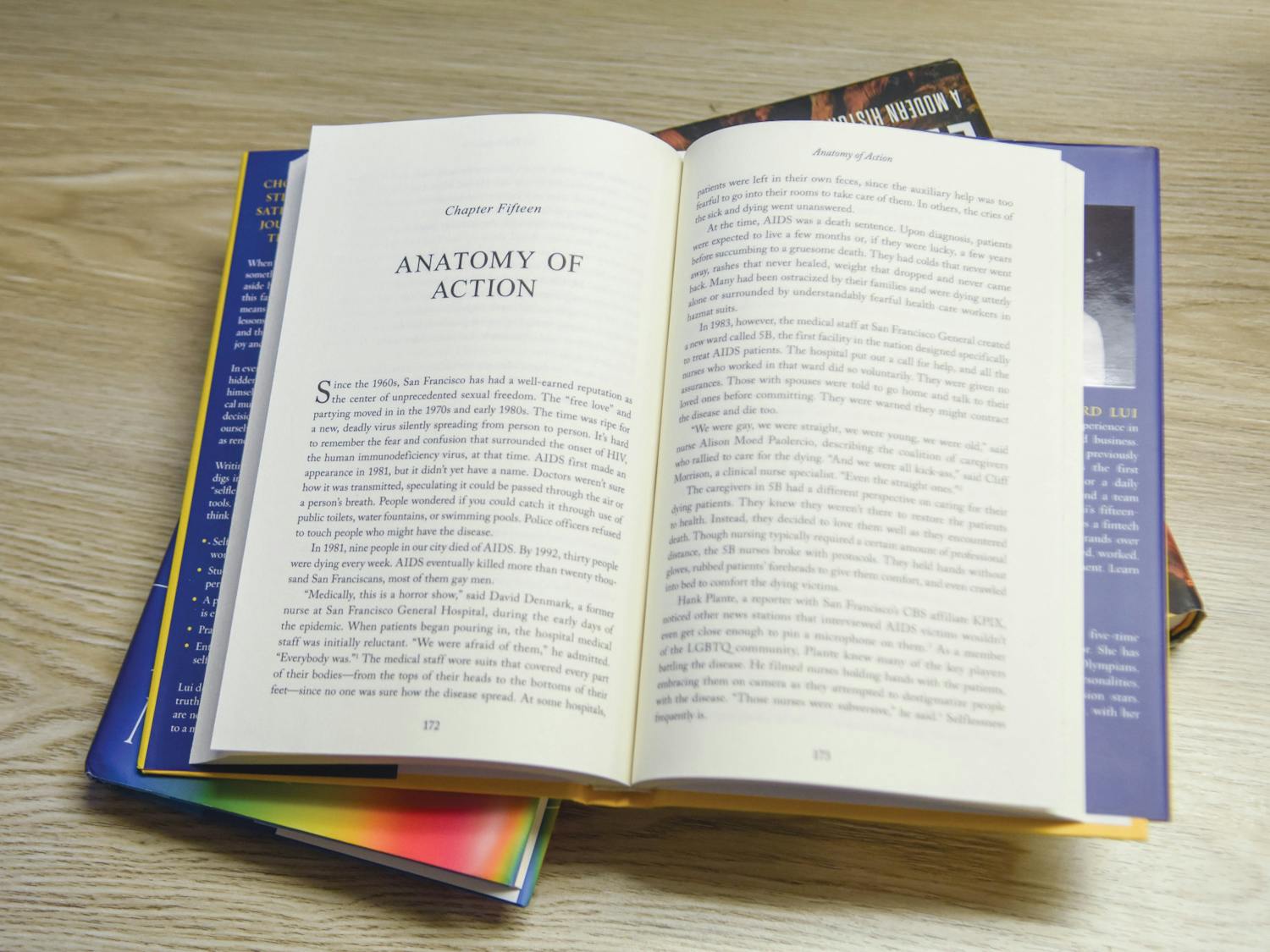The median household income in the United States in 2006 was $48,201. The sticker price of Penn's tuition is $46,124, or almost 96 percent of what a typical family earns in a year. Of course, these figures misrepresent the situation at Penn, where there are very few typical families.
All the same, I was happy to learn that by fall 2009, Penn "will eliminate loans for financially eligible undergraduate students regardless of family income." Even though the plan will only affect less than half of the undergraduate population, it accomplishes more than you might think.
For starters, it maintains the notion that Penn is a "preeminent" institution, as President Gutmann is fond of saying. Sure, Penn is a first-rate research university and arguably one of the 10 best in this country.
But the best way to achieve preeminence is to stop talking about it so much and focus a little bit more on the things that matter - like helping students pay for their education. This plan is a good start.
Of course, it's seems clear that the unrolling of the financial aid plan had less to do with University altruism and more to do with the glad tidings issuing from a certain school on the banks of the River Charles.
Just six days before Gutmann touted the "transformative" power of Penn's initiative, Harvard University drastically expanded its peer-leading financial aid policy. Redefining the definition of "middle-class," Harvard now promises loan-free financial aid to all students from households with incomes less than $180,000 per year.
Additionally, home equity is no longer factored into the algorithm used to determine the expected family contribution. Hear that sound? It's the clink of champagne flutes in mansions from Newton to the Cape.
Harvard spokesman Joshua Poupore verbalized the program's intended effect: "We hope, though, that our new initiative will encourage other institutions that have the means to increase financial aid to do so."
For schools with those means, tuition is quickly becoming irrelevant. More and more, it seems, elite colleges are eschewing tuition revenue in order to hook the best and the brightest with the shiniest lure of them all: a free ride. It's conceivable that in the near future, students at the Harvards of the world will pay nothing - in essence, everyone will be on scholarship.
Mind-boggling endowments are the engines driving this shift. "In 2007, Harvard's endowment grew by over 15 million dollars a day," says educational consultant and college admissions expert Steven Roy Goodman. "At that growth rate it doesn't even make sense to charge tuition."
Obviously, Penn can't compete on that scale. However, with the healthy progress of its now-public capital campaign - currently at $1.77 billion - the University has proven that it can keep pace with these developments and remain a top destination for students across the globe. At least that's what they say. But are top schools really being honest about their motives?
For instance, Amy Guttmann frequently asks alumni to open up their wallets for their alma mater. Yet these donations, as well as the vast federal research grants which Penn receives, remain tax-exempt. The University is essentially acting the pauper while enjoying what amounts to an embarrassment of riches.
It's an odd dissonance. "Higher education is in the midst of a very big shakeup," notes Goodman. "It's not clear whether the Ivies are investment banks or educational institutions."
Indeed, the tremendous assets of universities have increasingly drawn attention in Washington, as fellow-columnist Jim Saksa pointed out back in October. Throughout 2008, the IRS will review the tax compliance of universities, paying special attention to the use of endowments.
Still, thanks to heavy competition, many colleges are pursuing ambitious financial aid plans in an attempt to outdo their peers.
Loans have long been extinct at Princeton, and Yale just reduced its average cost by over 50 percent for families with financial need. The markup at all schools is sky-high, but most are under pressure to offer better sales than others.
Perhaps the Ivy League mottoes of the future will abandon Latin for "Expect More. Pay Less" or "Everyday Low Prices."
For now, I'm just glad the new financial aid policy will save my family several thousand dollars and benefit many of my peers. The reflexive follow-the-leader mentality and ulterior motives cloud the issue, but the results are inarguably great. Thanks, Penn!
Of course, one of the underlying premises of the financial aid price wars is that students are expected to be more loyal because of the generosity shown to them by their university-loyalty being a code word for "alumni giving."
It's a quid pro quo that's never stated but always implied. At the moment though, it seems fair enough.
Stephen Krewson is a College sophomore from Schenectady, NY. His e-mail is krewson@dailypennsylvanian.com. Every Other Time appears alternating Tuesdays.








